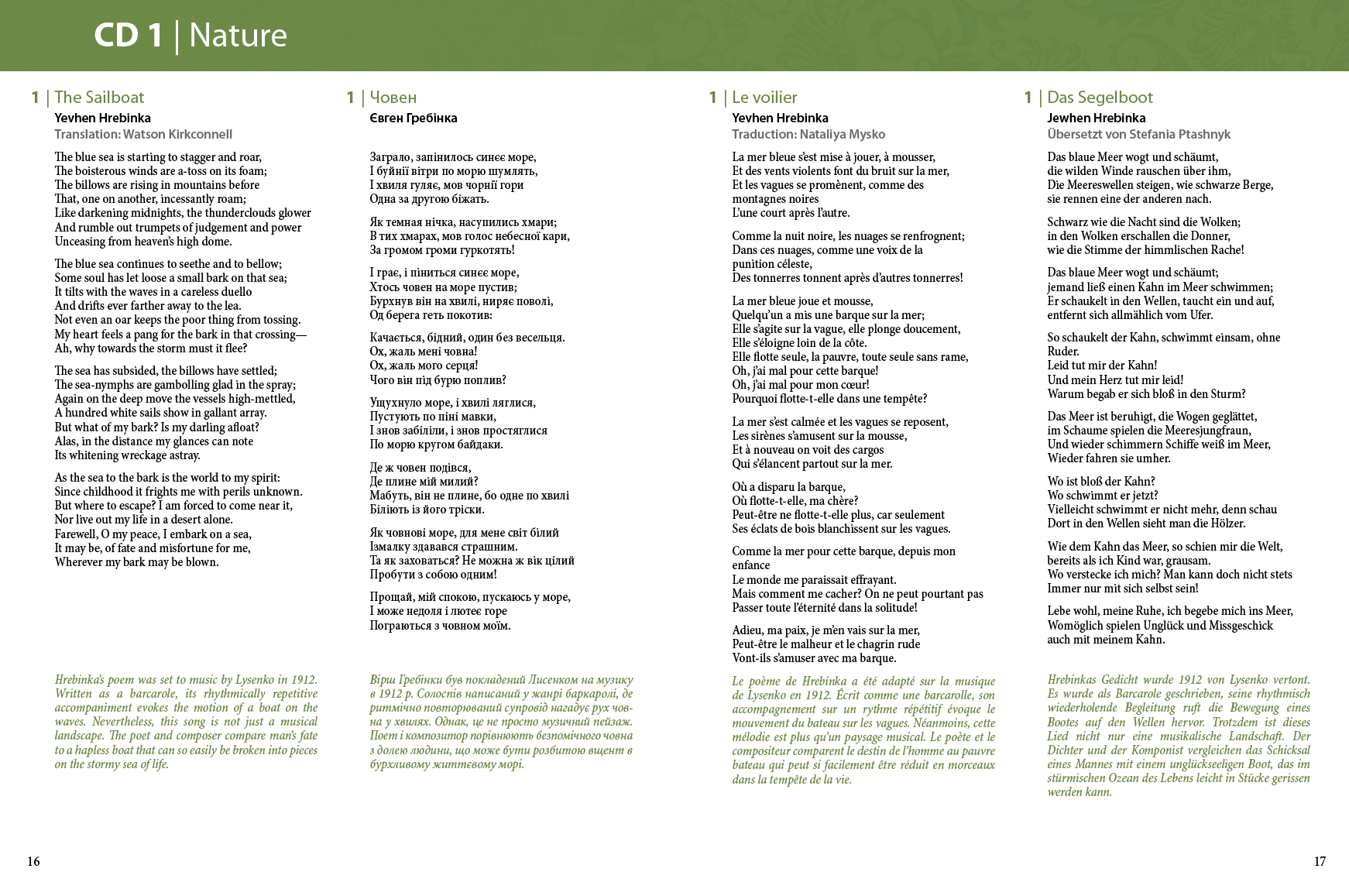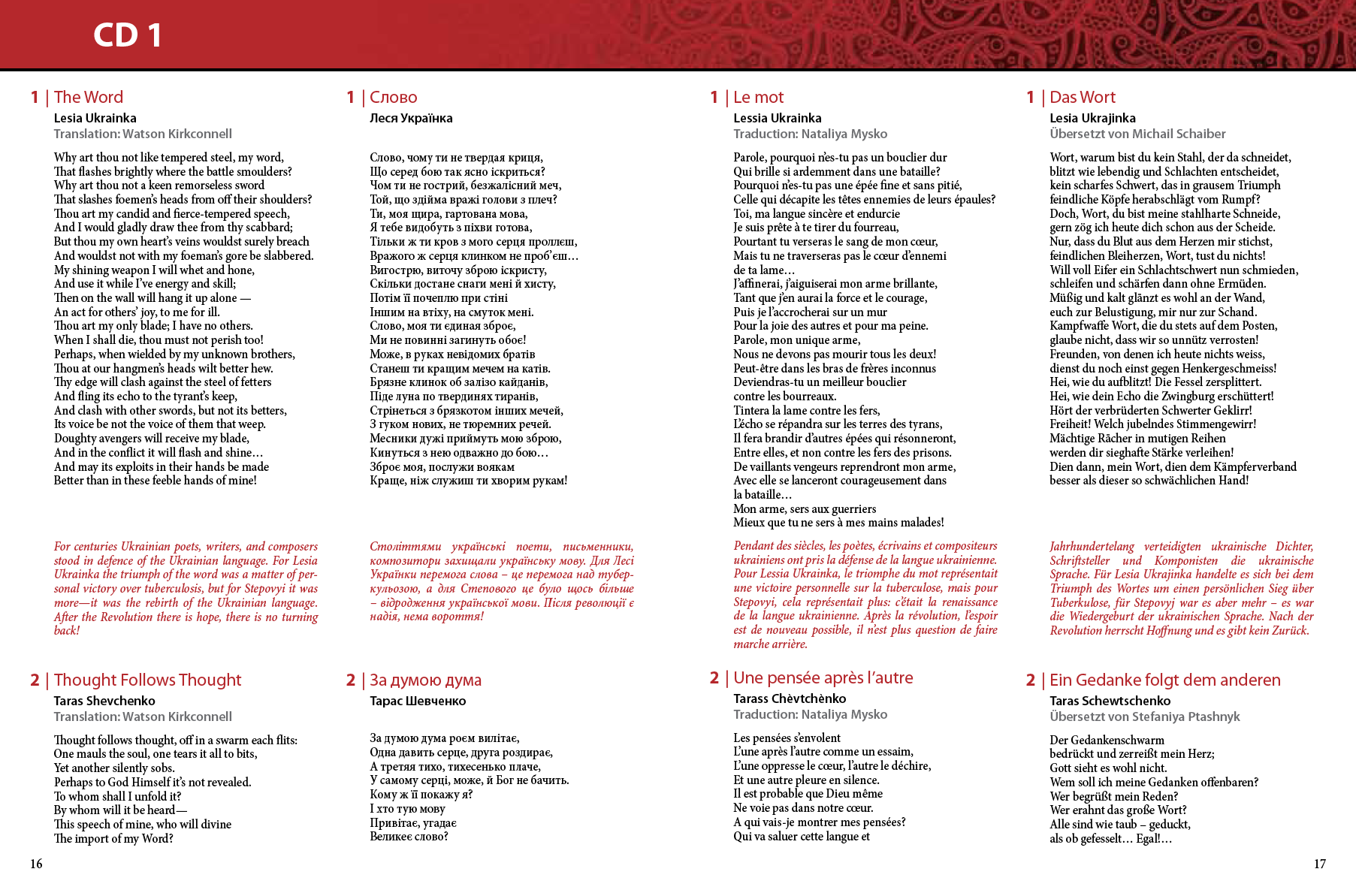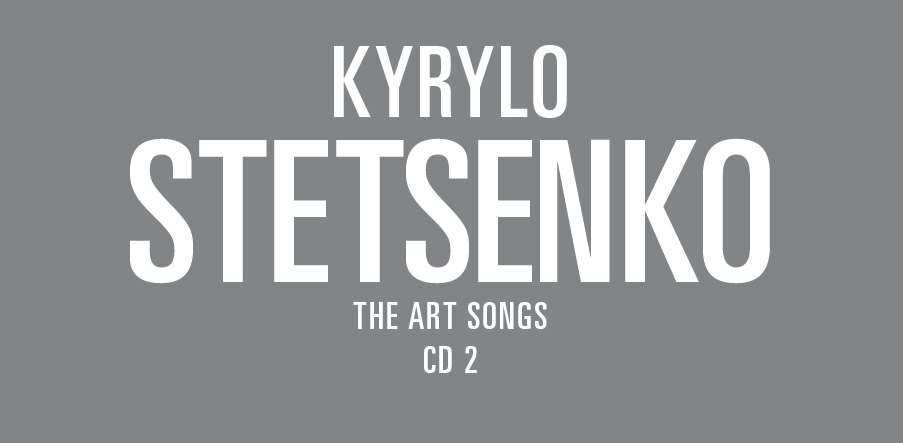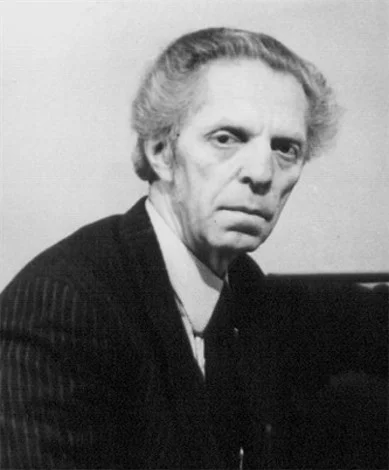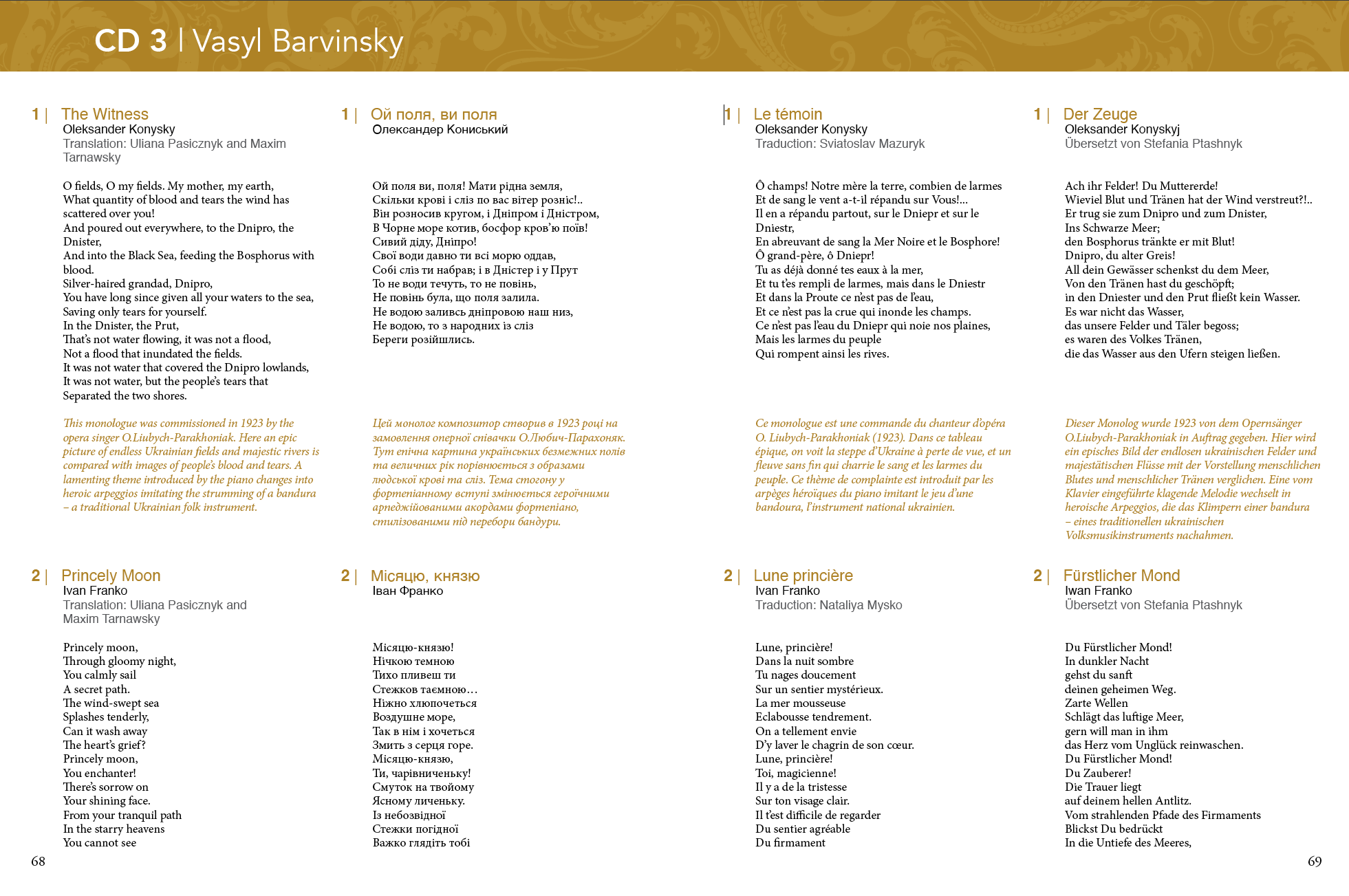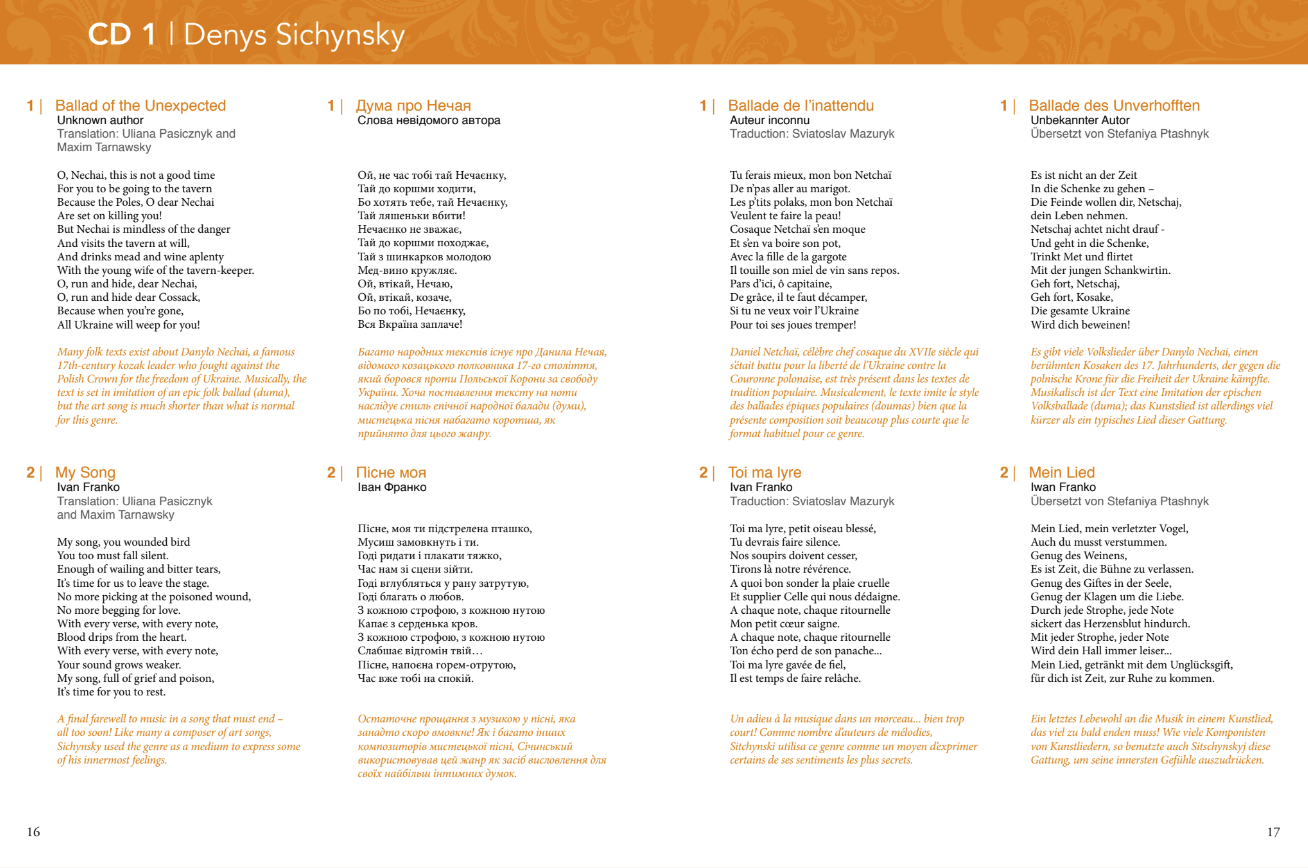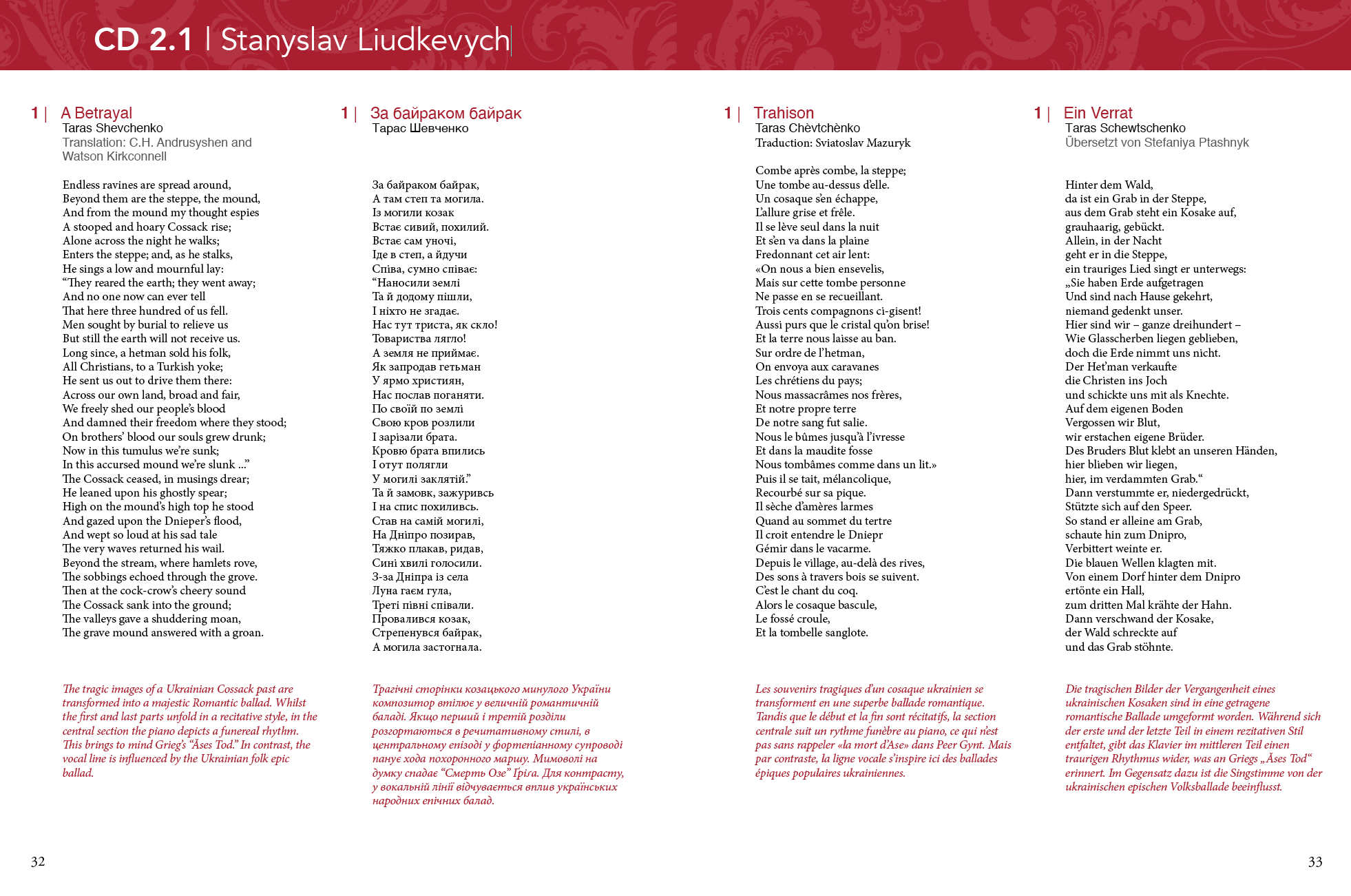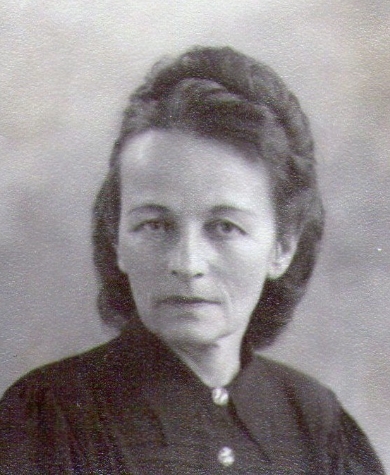UMF Library
Mykola Lysenko
Click on the title of each song to download the linked zip file which includes both pdf and .sib. If you wish to use the .sib files in the web browser you will have to have installed and turned on the current version of Scorch for the web. You can download it here Sibelius First. All links to the Scorch web plug-in and the Scorch iPad app are also available at the bottom of each composers section. Click the appropriate button and follow the instructions to download and install the version of scorch you would like to use.
All songs are free to download and perform, so kindly consider making a donation of $5, $20, $50 or whatever you can, to support and sustain this archive.
Thank you
To download a song:
Click the link with the name of the song which will download a zip file.
Open the zip file and then the subfolder with the name of the song.
Open the file with the format you wish to work with - either PDF or Silbelius. If you want to keep the file, ensure you save it to a local drive.
For further information about downloading the scores and also using the Scorch plugin or app to play and transpose the scores, please click below.
MYKOLA LYSENKO
Mykola Lysenko (1842 - 1912) is the father of modern Ukrainian classical music. His prolific life’s work laid the foundation for the further development and expansion of Ukrainian musical culture. He influenced a large group of Ukrainian composers, including Stetsenko, Stepovyi, Leontovych, Koshyts, and Liudkevych. A compilation of Lysenko’s works in 22 volumes was published in Kyiv in 1950–59.
Lysenko was a composer, ethnomusicologist, pianist, and conductor. He studied at the Kharkiv and Kyiv universities and, later, at the Leipzig Conservatory under Reinicke and Richter (1867–69). From 1874 to 1876 he studied orchestration under Rimsky-Korsakov in St. Petersburg. In 1904, he founded his own School of Music and Drama in Kyiv.
The list of Lysenko’s operatic compositions include Black Sea Cossacks (1872); three operas based on the works of the Ukrainian writer Mykola Hohol – Christmas Night (1873–82),
The Drowned Maiden (1883) and Taras Bulba (1890); and the operettas Natalka from Poltava (1889) and Aeneas (1911). Himself a well-known pianist, Lysenko composed a piano sonata, two rhapsodies, a suite, a scherzo and a rondo, as well as an abundance of smaller pieces, including songs without words, nocturnes, waltzes and polonaises. He also wrote a number of works for strings. Of the Ukrainian composers, Lysenko was the most committed to the art song genre. Lysenko’s 133 art songs (lirychni pisni in Ukrainian) relate a wonderfully descriptive and passionate story of 19th- and early 20th-century European life.
To download these tools and for further instruction on their use, click on the links below:
All Lysenko Art Songs lyrics
SONG LIST
CD 3 - Fate
CD 4 - A Historical Theme
CD 5 - A Philosophical Theme
To download these tools and for further instruction on their use, click on the links below:


